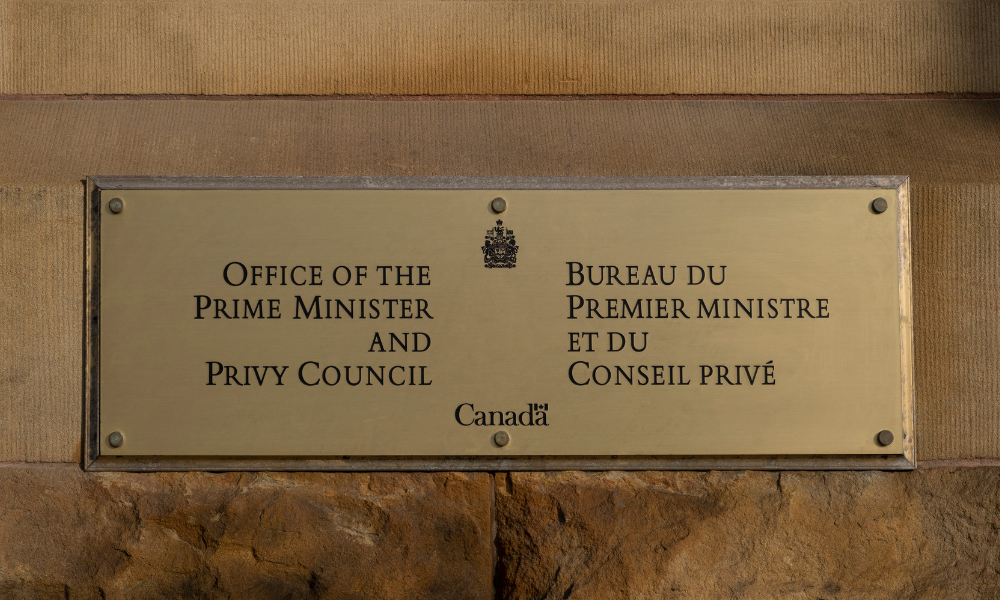Former PM says Carney's claims about his role in Canada's financial crisis response are exaggerated

Former Prime Minister Stephen Harper has accused Mark Carney of taking undue credit for Canada’s response to the 2008 financial crisis, calling his claims misleading as he campaigns to become the next Liberal leader.
Harper, in a letter to Conservative supporters, said that it was the late finance minister Jim Flaherty, not Carney, who made the key decisions that helped Canada navigate the global recession.
Carney, who served as Governor of the Bank of Canada at the time, has pointed to his leadership in monetary policy as a major factor in Canada’s economic resilience. But Harper dismissed that, saying Carney was not responsible for the government’s economic strategy.
“I have listened, with increasing disbelief, to Mark Carney’s attempts to take credit for things he had little or nothing to do with back then,” Harper wrote. “He has been doing this at the expense of the late Jim Flaherty, among the greatest finance ministers in Canada’s history, who sadly is not here to defend his record. But let me be very clear: the hard calls during the 2008-2009 global financial crisis were made by Jim.”
Flaherty, who passed away in 2014, was Harper’s finance minister for eight years. His tenure included cutting personal and corporate taxes, introducing the Tax-Free Savings Account (TFSA), and lowering the GST to 5%. He also oversaw the government’s spending cuts and economic measures that helped Canada emerge from the recession with a shorter and less severe downturn compared to the US and Europe.
Carney, however, has defended his role in Canada’s recovery, arguing that the Bank of Canada’s monetary policies, including rapid interest rate cuts, were key to stabilizing the economy.
His campaign website describes him as having “guided Canada through one of the most turbulent economic periods in modern history, protecting jobs and helping ensure that Canada came out stronger.”
A statement from Carney’s campaign pushed back against Harper’s criticism, noting that Harper and Flaherty themselves had praised Carney’s leadership at the time. The campaign also framed Harper’s letter as a political move to protect Conservative leader Pierre Poilievre, who has seen his lead in the polls shrink in recent weeks.
“In 2025, Mr. Harper is being called on to save Pierre Poilievre from a historic drop in support, but no amount of revisionist history can take away from Mr. Carney’s proven record of economic leadership,” the statement said.
The dispute highlights a deeper divide between fiscal and monetary policy. While governments handle spending, taxation, and economic programs, central banks control interest rates and inflation policy. Harper’s argument suggests Carney is overstating the Bank of Canada’s role in shaping the country’s economic recovery.
The fight over Carney’s credentials is happening as the Liberal leadership race enters its final stretch, with the party set to select a new leader on March 9. Carney is widely seen as the frontrunner, and his campaign has gained momentum following Prime Minister Justin Trudeau’s decision to step down.
Recent polls have shown the Liberals narrowing the gap with the Conservatives, reversing years of double-digit deficits. Analysts believe a combination of Trudeau’s exit and economic concerns, particularly US President Donald Trump’s renewed threats of tariffs against Canada, have shifted voter sentiment.
With Carney gaining ground, Conservatives have sharpened their attacks, attempting to link him directly to Trudeau’s policies.
“Make no mistake, Mark Carney is just like Justin,” Harper’s letter stated.
Read next: Carney pledges temporary cap on immigration
Carney, meanwhile, has focused on presenting himself as a pragmatic leader on economic issues. Speaking in Calgary on Tuesday, he condemned Trump’s newly imposed tariffs on Canadian goods, calling them an “unjust attack on Canadian workers, families, and businesses.”
“The imposition of 25% tariffs on Canadian goods and 10% tariffs on oil is an unjust attack on Canadian workers, families, and businesses,” Carney told a crowd of Liberal supporters. “Canadians are united and determined, and we will win.”
Harper’s attack on Carney signals that the Conservative strategy is shifting as the 2025 election draws closer. Carney has built his campaign around economic leadership, but Harper’s challenge forces him to clarify exactly how much influence he had during Canada’s 2008 recovery.
Make sure to get all the latest news to your inbox on Canada’s mortgage and housing markets by signing up for our free daily newsletter here.



